Add Fruits and Veggies
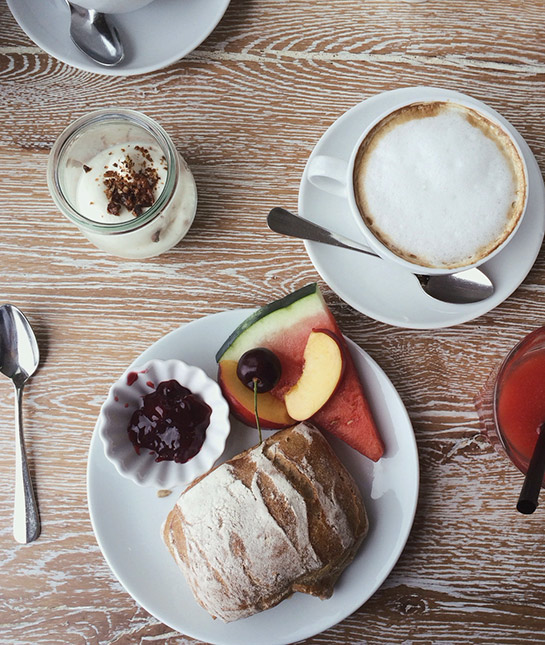
No matter the meal, challenge yourself to add at least one fruit or one vegetable. "Not only will this tiny change move you closer to a goal of about five cups per day, but the fruits and veggies will hopefully replace higher calorie, less nutritious foods," says Lauren Pincus, a registered dietitian and founder of Nutrition Starring YOU. If you're ordering a pizza, cut up some carrot sticks. And ask for a side of fruit with those pancakes in lieu of the bacon.
MORE: Grab-and-Go Breakfasts
Love this? Follow us on Pinterest.
Image via thisislinda/Twenty20
Make Breakfast Before Bed
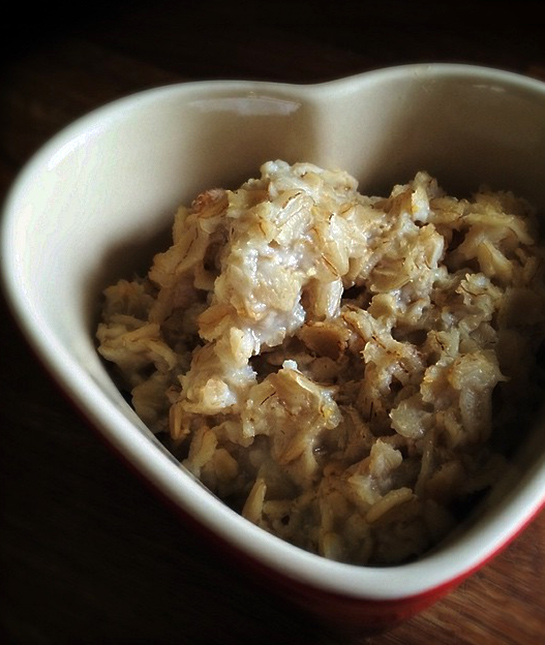
We can't say it enough—breakfast really is the most important meal of the day. To ensure you're squeezing yours in, make it the night before, starting with these oatmeal breakfast pie recipes by Pincus. Not only is oatmeal one of the best foods for sustaining your energy all morning long, but these pie versions are also perfect whenever you're short on time.
Love this? Follow us on Pinterest.
Image via beckycharms/Twenty20
Practice Mindful Eating
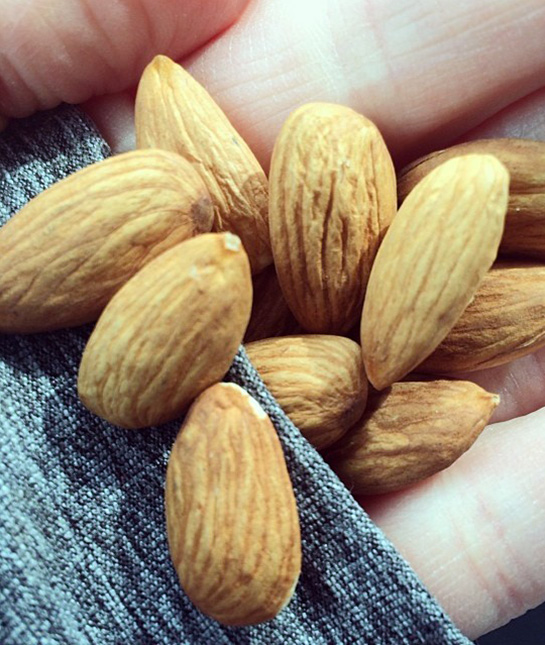
To test whether or not you’re actually hungry, ask yourself where you’re at on a number scale. “On a scale of 1 to 10, you want to eat at around 3 and stop between 6-7. At 3 you are hungry, but not starving, at 6-7 you are satisfied but not full,” says Pincus. “Taking note of your hunger and fullness while eating slowly can definitely help you consume less.”
Love this? Follow us on Pinterest.
Image via beckycharms/Twenty20
Set a Bedtime Alarm
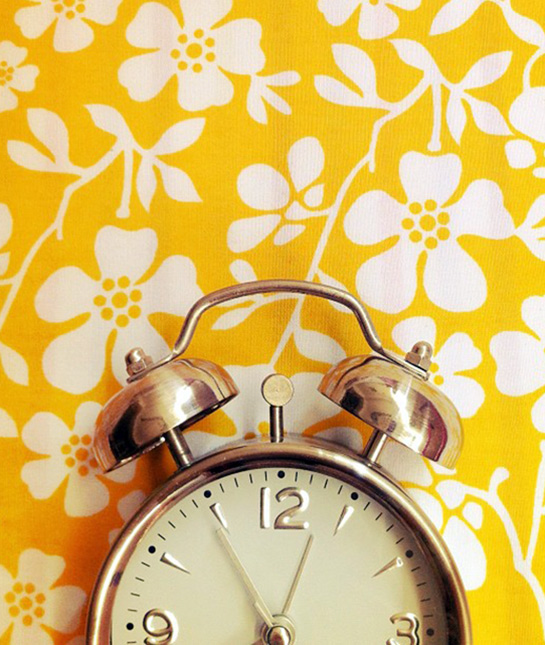
You have an alarm for waking up, so why not set an alarm to remind yourself it’s time for bed? For the bedtime alarm, set it 15 minutes earlier than when you usually go to sleep and train yourself to hit the pillow sooner. “Lack of sleep not only makes our day less pleasant but can be a contributory factor to obesity,” says Pincus. “If you are not sleeping seven to nine hours, try adding a few minutes at a time.”
Love this? Follow us on Pinterest.
Image via mskatherineq/Twenty20
Rise Earlier

As you head to bed earlier, try setting a routine of waking up with the sun, says Dr. Carolyn Dean, MD, ND, and medical advisory board member of the Nutritional Magnesium Association. Studies have correlated early risers with being more optimistic and more proactive, while kids who go to sleep earlier and wake up earlier tend to get better grades.
Love this? Follow us on Pinterest.
Image via vulvettytoads/Twenty20
Start With One Step

If you’ve heard you should walk 10,000 steps a day, you’re exactly right. This is a great goal to strive for … eventually. But the number is daunting, says Pincus. Instead, start by trying to take an extra 100 steps every day, she says, and move that number up a little more each day.
Love this? Follow us on Pinterest.
Image via vbruklynnc/Twenty20
Add Water
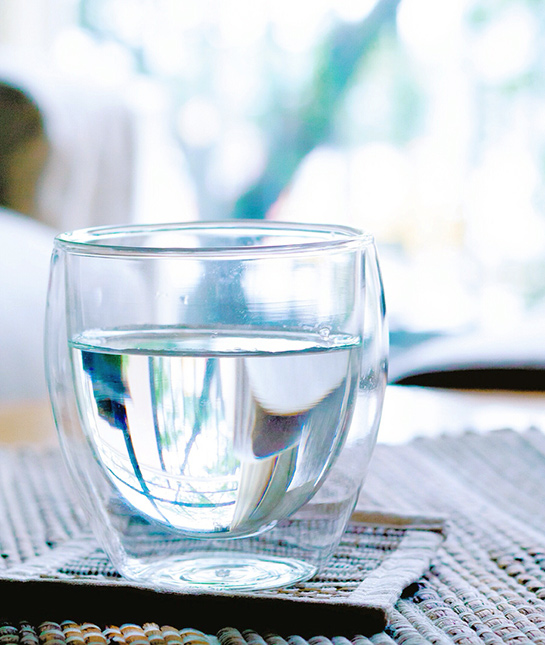
As you probably know, drinking water is incredibly important. But if you only aim for eight cups each day, that might not be the right number for you. The correct amount is actually based on your weight. Divide your body weight (in pounds) in half, and that’s the number of ounces you should be consuming daily, says Dean.
Love this? Follow us on Pinterest.
Image via maako/Twenty20
Add A Little Salt
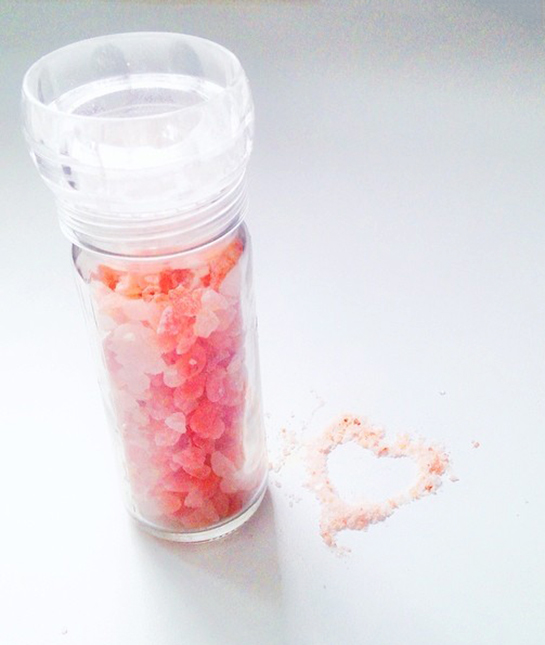
Speaking of hydration, add 1/8-1/4 teaspoon of sea salt or Himalayan salt to each liter of water you gulp down. “This ensures you get 72 minerals for your cells to help cellular health and hydration,” says Dean.
Love this? Follow us on Pinterest.
Image via themissmiss/Twenty20
Mix in Magnesium
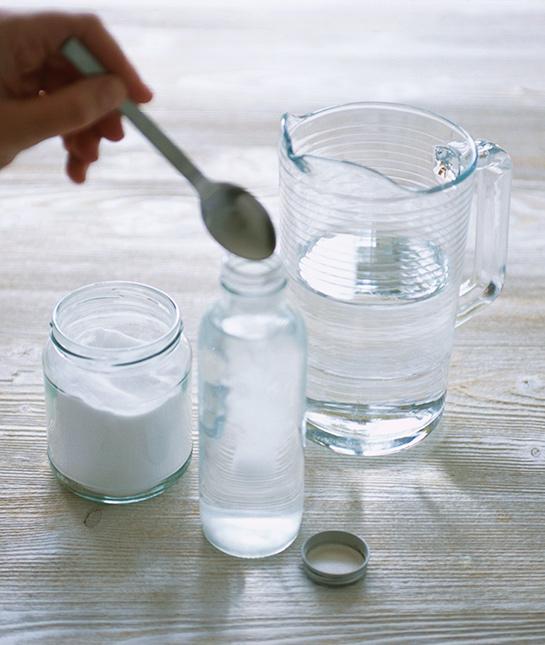
Another thing to add to your water: a powdered magnesium citrate. Magnesium is a key mineral for energy production, which means it can give you an all-natural, caffeine-free energy boost. “Magnesium is required for the body to produce and store energy,” says Dean. “Without magnesium, there is no energy, no movement, no life. When you lose it through sweat and physical stress and exercise, you need to make sure you replenish it.”
Love this? Follow us on Pinterest.
Image via Russell Sadur/Getty Images
Add a Pre-Bed Fast
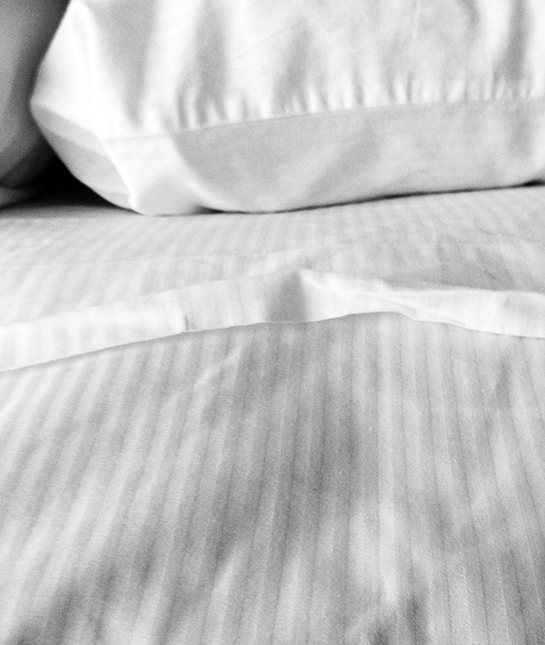
According to Dean, never go to bed on a full stomach. Instead, wait three hours before turning in for the night. “And try not to eat heavily at night, especially avoiding carbs, as this can cause nausea in the morning,” she says.
Love this? Follow us on Pinterest.
Image via dylanwalls/Twenty20
Add Lemon Into Water
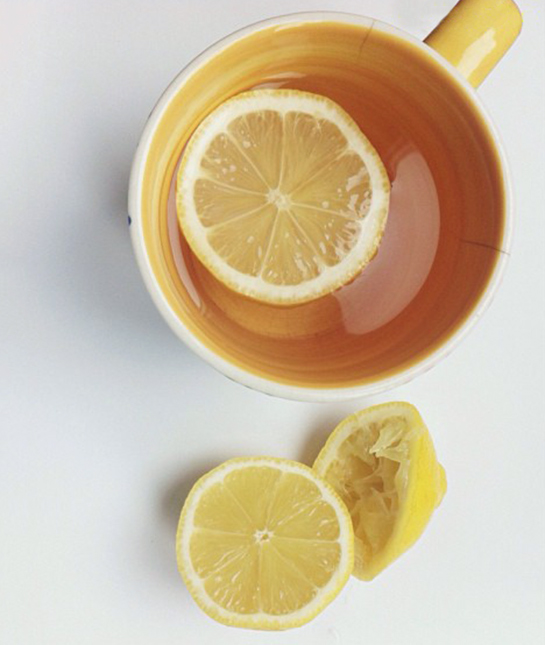
Kick off each morning by squeezing some lemon juice into a glass of water and drink as soon as you get to the kitchen. This will help stimulate the digestive system, says Dean. She also recommends spacing four to five hours between each meal to avoid overloading digestion throughout the day.
Love this? Follow us on Pinterest.
Image via red_sh0es/Twenty20
Lose the Scale
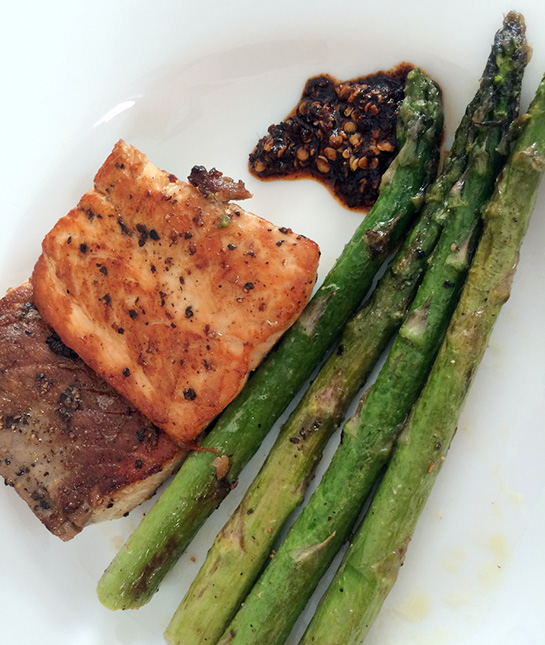
“Ironically dieting is associated with weight gain, not loss,” says Dr. Ellen Albertson, PhD, a psychologist, nutritionist and founder of SmashYourScale.com. “Research shows dieting also increases perceived stress and the level of the stress hormone cortisol.” Instead of dieting, try filling up half your plate with vegetables at lunch and dinner. “You’ll increase the amount of nutrients you consume and reduce the number of calories you eat,” says Albertson.
MORE: Hidden Vegetables Recipes
Love this? Follow us on Pinterest.
Image via expertolandia/Twenty20
Smile More

Smile at everyone you see, even if you don’t know them. “Research has shown that smiling has a positive effect on happiness and physical health, helping the heart recover more quickly after stressful events,” says Albertson.
Love this? Follow us on Pinterest.
Image via taniramaurer/Twenty20
Swap Your Dairy
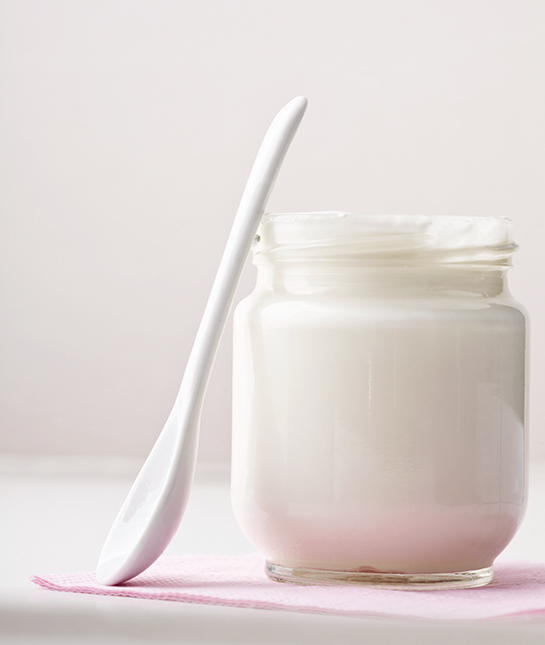
In lieu of sour cream, butter, mayo or cream cheese, use a dollop of Greek yogurt instead. “It’s low in fat and calories and packed with protein and calcium,” says Albertson. Plus, you won’t lose out on any flavor.
Take a Stand
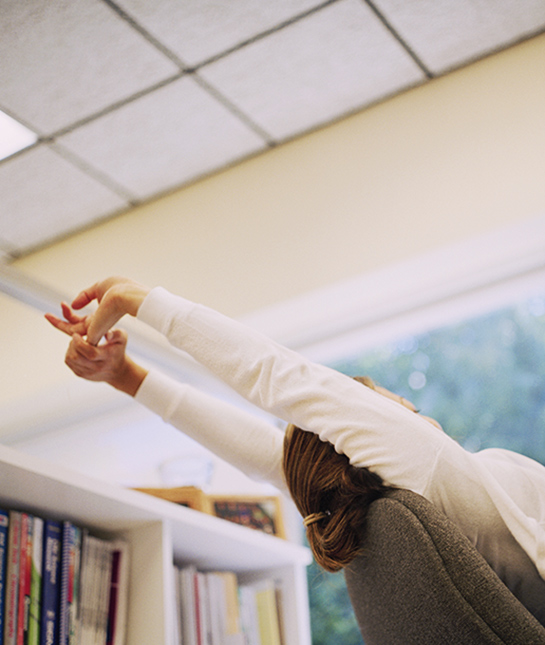
Particularly for those whose jobs require sitting for long stretches of time, set a reminder on your phone or computer every hour, encouraging yourself to stand up and stretch or take a stroll around the office. “Even for the active, sitting for long periods shortens life and erodes health,” says Albertson.




